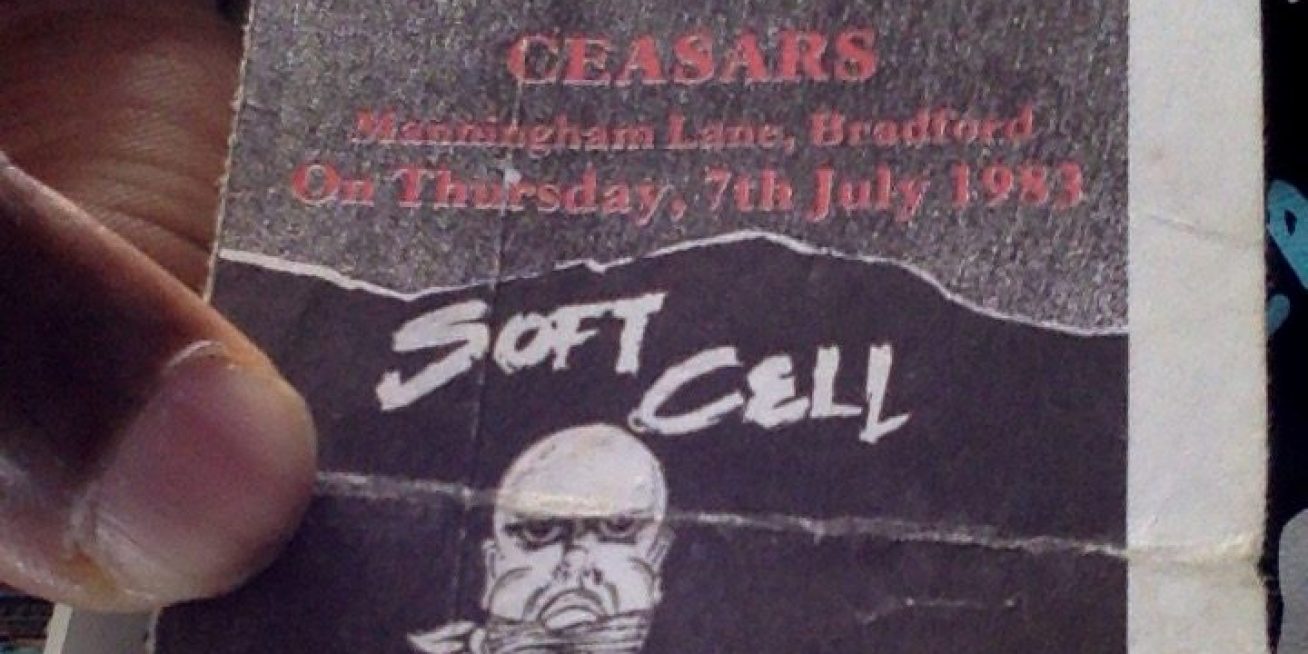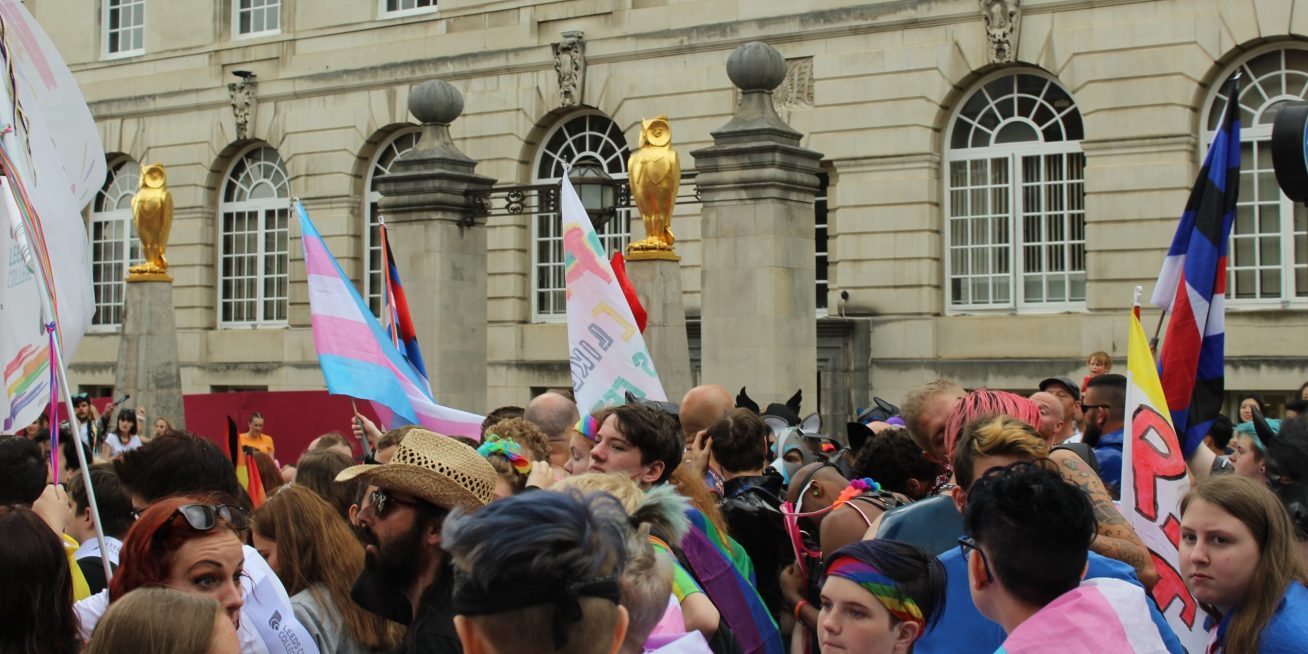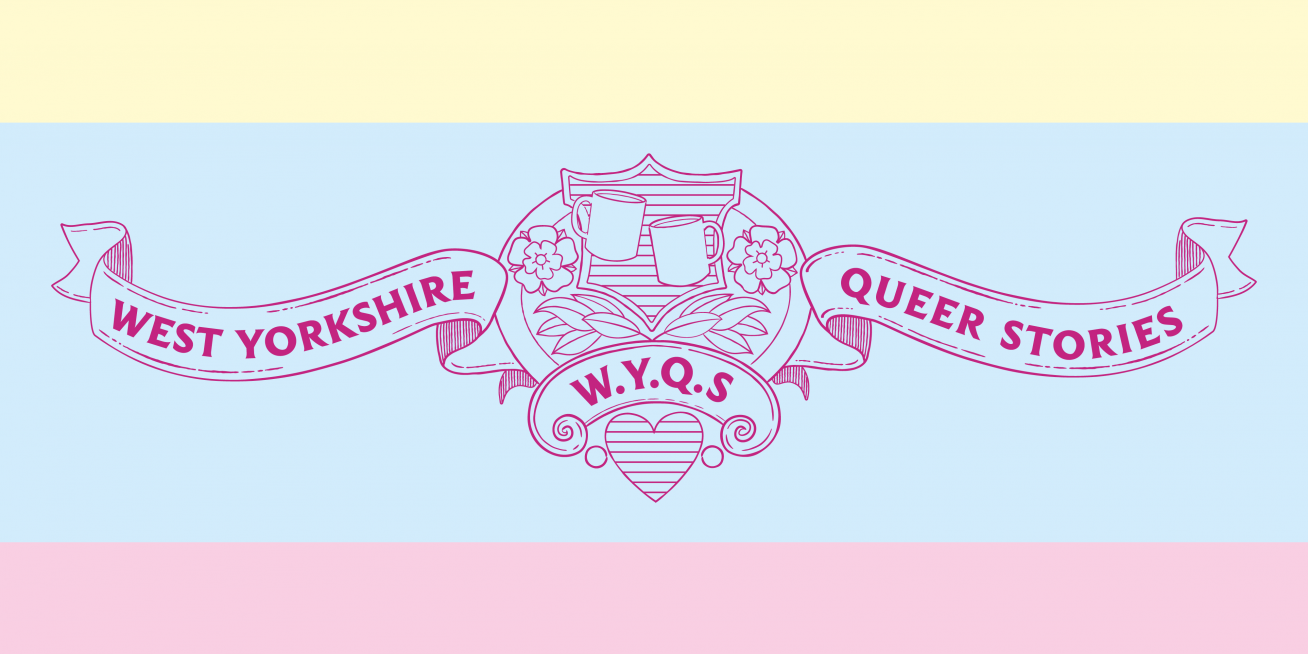Adopting as a gay couple
Rob explains his motivation for adoption and talks through the process that led to him and his partner becoming 'the first gay male couple to be assessed in the north of England'.
Interview recorded by Joe Thompson on 23.9.2019
Duration 06:45
TRANSCRIPT
Rob: Yes, I met my partner through being a Quaker, and it’s always been a really important part of our life. I went on to have a career in social work, and as I was doing my, my Diploma in Social Work I had to do a, a, a placement in a fostering and adoption unit in Bradford. And in the first team meeting at that, at – in the Bradford fostering and adoption unit, the manager talked about the ‘glut’ of seven year-old boys that they’d got. And I went home and said to Owen that ‘this is shocking, here we are, we’ve got a four-bedroomed house, life’s comfortable. We’ve got to do something about it [laughs], we can’t have kids there that are being treated as a glut’, it was, it was just obscene. So, very quickly we decided that we were going to go down the adopt – that we were going to apply to become adoptive parents.INTERVIEWER: And how, how old are you both at this time?
R: So…that placement was in 2000 until I was 30 and Owen was 35. Yeah. Yes, so we got together in – I was 21, just, when we got together, so. We’ve been together 28 years now. Yeah. I think – think [laughs].
INTERVIEWER: Amazing.
R: So we, we went down – we, we... applied to, to adopt, and the first thing that happened was they, they sent two social workers round, think they were a bit flummoxed because… I, I was quite experienced in, in the adoption system because of my work placement. [Pause] But one of the questions that they left us with, was ‘what would you do if you ended up with the press on your doorstep? When you’ve got these children?’. And I just thought, ‘well that’s a, a bizarre angle to take, why on earth are you asking that, surely you should be asking about our parenting capacity? And, and what we’ve got to offer children, how we’re going to accommodate them in our lifestyle. But how we’re going to deal with the press? That’ – I just thought that’s bonkers, and so I just talked about my, my best Cherie Booth smile, cos she’d just been doorstepped at 10 Downing Street. And… and… - anyway, nothing happened so we ended up having to really –
INTERVIEWER: Had –
R: – sorry, go on –
INTERVIEWER: Had that consideration come to you before they had mentioned it?
R: [Pause] The thought of it being a political thing hadn’t, no. The, the – my sense of outrage that children were a glut was my, was my motivating factor. We’d been approached by a colleague when I was working for Calderdale, a lesbian colleague who was looking for somebody to… to be a sperm donor, and we’d thought really carefully about that and thought, ‘actually, that’s, that’s not the way we would ever consider – well, it’s, it wouldn’t fit with what we see as, as right for us, as parents.’ [Pause] So… we’d thought about parenting before, and we’d thought about how we would want – we hadn’t thought we needed to, perhaps, we hadn’t thought we needed to. But I then came to think that actually, we need to do this, not for us but for children, because there’s kids that are effectively homeless and, and haven’t got security, of, of a family and we could offer something. So… we went through the assessment process, it took ages to get a social worker and I was really pissed off thinking ‘this is because we’re gay, we’re not being allocated a social worker, they’re just trying to fob us off, and, and I’m, I’m not one for being fobbed off.’ So, I then started phoning up the adoption service every week, to ask how they were getting on with allocating our case. And anyway, then we got allocated a wonderful social worker, who pointed out that we were the first gay male couple to be assessed in the north of England, it’d happened in London and Brighton, and then we were the next ones. And that’s when I thought ‘bloody hell!’ [laughs]. Because, because I’d been working for a local authority, I knew all about how local authorities deal with equalities, and... and hadn’t… - I’d just presumed it would have been done before and we’d just be on the, on the treadmill really, we’d just be processed. But anyway this social worker was fantastic, she said…‘the sex-, your sexuality’s not an issue for me, we’re – this is all about children’, and, and off we went.
So then the day that we were approved, we weren’t allowed to attend adoption panel because back in those days, it was just the adoption panel that made the decision and, you got a phone call to say yes or no. So we were on tenterhooks, I was at work, and then we got the phone call to say that we’d been approved, and the social worker asked to meet Owen at the post office steps in Leeds when it was still on City Square, with the papers for these children, that they wanted to place with us… And they seemed like a, a good match. So, it took a while because our daughter was coming on for seven, and our son was five, when they were placed with us, so they were in school so they had fit in with the school timetable – with the school calendar. So they moved in on the 20th of July, we had two weeks of introductions, as the school term was coming to, to an end. And then they moved in. And, from then on we were ‘dad’ and ‘pop’. They, they, they made it crystal that they couldn’t cope with ‘daddy Rob’ and ‘daddy Owen’ because they’d, they end – inevitably shortened it and called us ‘dad’, and then Mark, our son, said ‘well I don’t know which daddy I’m talking about’ [laughs] so, so we thought, ‘well actually we need to do something about this’, and… we became ‘dad’ and ‘pop’’. And that’s been great – adoption’s been a, a challenge, but… we, we got through it, with, with support. [Pause] And I suppose adoption makes you think… about family and about relationships, because these children who are of no biological relationship are absolutely your family, you… you form a link that is so unique and so special, and I suppose that [pause] – it just made me… see – or now, I can see that it made me feel that really the whole world’s my family, that, that those connections can be made with anybody. It’s, it’s about how you live, not, not how they’re connected to you that’s important.






